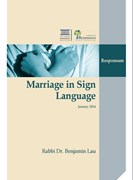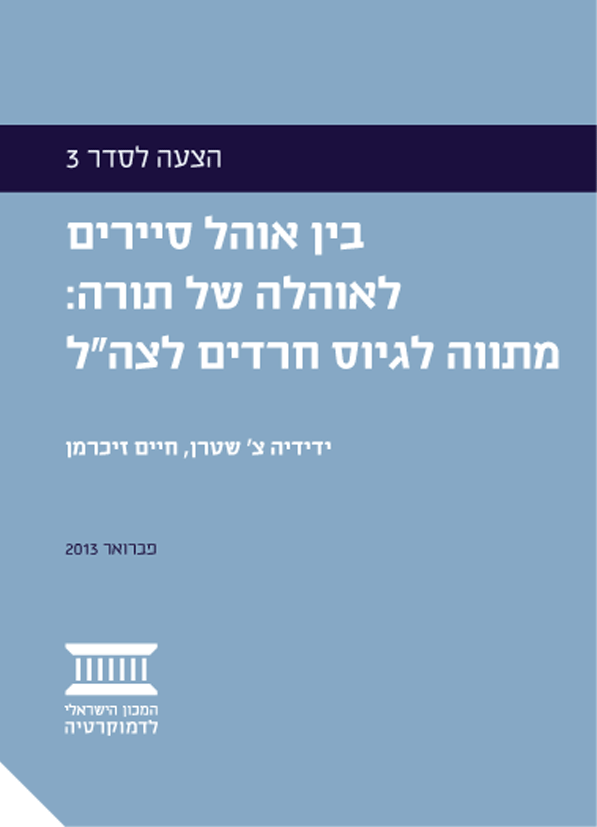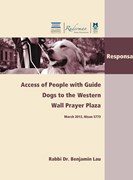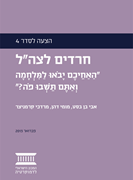

Publications Regarding equality
Articles

Dr. Gilad Malach on TOI's "What Matters Now"
Written By: Dr. Gilad Malach, Amanda Borschel-Dan
IDI Research Fellow Dr. Gilad Malach joins host Amanda Borschel-Dan on the Times of Israel weekly podcast, What Matters Now. They discuss the contentious matter of ultra-Orthodox (Haredi) conscription, including the history of Haredi exemption from IDF service, modern cultural norms in Haredi society, and the current Haredi conscription proposal making its way through Knesset.

The Haredi Demonstration in Jerusalem: A Struggle for Identity, Not Just For the (Non-)Conscription Law
Written By: Eliyahu Berkovits
Behind the call to oppose the “persecution of Torah learners” lies a different struggle: an attempt by Haredi society to unite its ranks and strengthen a communal identity that has been eroded by the growing pressures to integrate into Israeli society, especially after two years of war.

The Bismuth Outline for the Draft Exemption Law
Written By: Adv. Shlomit Ravitsky Tur-Paz

Lack of Protective Structures Against Missile Attacks in Arab Localities
Written By: Adv. Lital Piller
As Israeli citizens are facing severe threats to their safety during following an escalation of hostilities between Israel and Iran, it is, once again, clear that Arab localities lack proper protective infrastructure against missile attacks.

Reserve Duty During the Iron Swords War by Religious Self-Definition
Written By: Dr. Ariel Finkelstein, Nadav Porat Hirsh
This study presents a survey of the distribution of reserve duty among the various religious groupings within the Jewish population, along with more in-depth analysis regarding the age and gender of reservists.

Early Childhood Daycare Subsidies in Israel in Different Sectors
Written By: Gabriel Gordon,
A survey of daycare subsidies in Israel and recommendations for improved criteria that would encourage participation in the labor market among the ultra-Orthodox.

Haredi Yeshiva Students Are Being Called to IDF Enlistment Centers. What’s Next?
Written By: Adv. Shlomit Ravitsky Tur-Paz, Dr. Eran Shamir-Borer, Adv. Mirit Lavi
On Monday August 5, 2024 and Tuesday August 6, 2024—900 ultra-Orthodox yeshiva students were required to present themselves at IDF enlistment centers. Shlomit Ravitsky Tur-Paz, Dr. Eran Shamir-Borer and Mirit Lavi explain the next steps the IDF will need to take in order to enforce the legal obligation of conscription.

A Sharp, Unequivocal, and Unanimous Supreme Court Decision to Draft Haredim
Written By: Prof. Suzie Navot
The Supreme Court ruling on June 25th addresses the question of whether the government is operating in accordance with the law. It determined that the state must act in accordance with the law and act to draft ultra-Orthodox. It also connects between the issue of exemptions and the criteria for eligibility for yeshiva budget funds.

A Historic Supreme Court Hearing on Haredi Conscription and Yeshiva Funding
Written By: Adv. Shlomit Ravitsky Tur-Paz
Israel's Supreme Court convened to hear arguments on the issue of drafting ultra-Orthodox yeshiva students who no longer are exempt from military service, and the legality of providing funding for yeshivas that enroll them as long as no new law has been legislated on this issue.

The latest military exemption law - a return to the 2022 (non-) conscription law
Written By: Yohanan Plesner , Adv. Shlomit Ravitsky Tur-Paz, Dr. Gilad Malach
The proposed law ignores the dramatic change in Israel's security situation since October 7 and does not address the need for more combat soldiers, nor does it respect the burden on the populations that already serve.
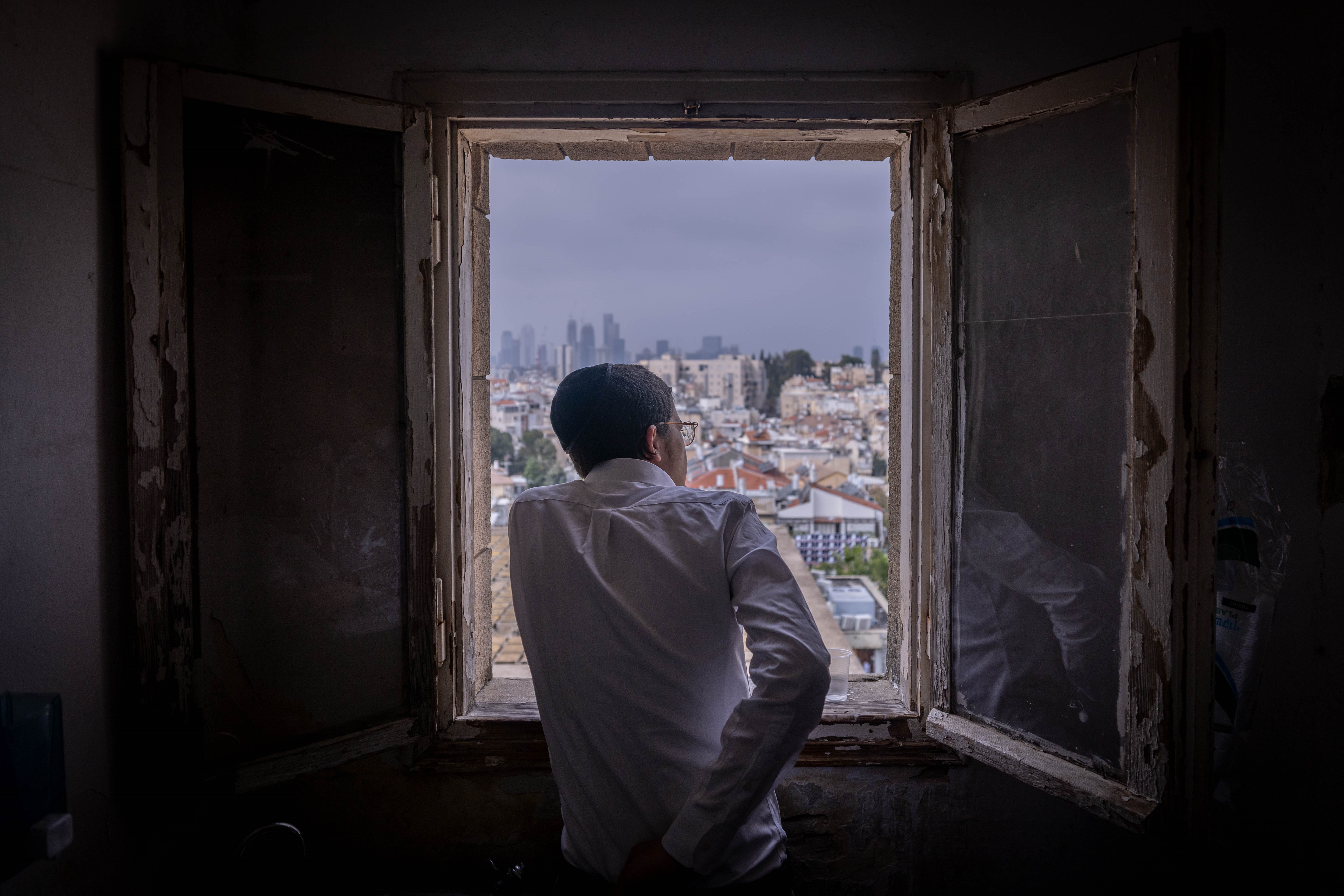
I, Too, Have Come to my Senses: It is Time to Rethink the Haredi Role in Israeli Society
Written By: Dr. Rivka Neriya Ben-Shahar
Dr. Rivka Neriya-Ben Shahar proposes a model that resembles the secular educational system of colleges and universities to identify the most gifted torah scholars, who would receive a generous stipend. Others must rethink their role as part of Israeli society.
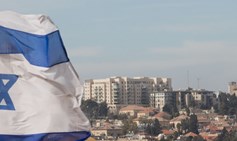
Nation-State Law Explainer
Written By: Dr. Amir Fuchs, Prof. Suzie Navot
Fact Sheet: The Basic Law: The Nation-State

Women, Go for It!
Written By: Dr. Idit Shafran Gittleman
The IDF, like every other state institution in Israel, is obligated to the principle of equality – meaning that any woman who is capable of doing so must be permitted to serve in elite combat units

The Lack of the Right to Equality in Israel is Unique in the Democratic World
Written By: Prof. Yuval Shany, Dr. Amir Fuchs
Israel Democracy Institute researchers welcome the move to anchor the right to equality in a Basic Law, and note the urgent need for this step, particularly in light of the Nation-State Law. At the same time, the researchers also recommend a series of amendments to the bill.
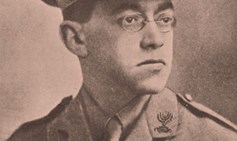
Did You Know? Israel has no Law Guaranteeing the Basic Right to Equality
Written By: Dr. Amir Fuchs
A bill to include the right to equality in Israel's Basic Laws recently passed a preliminary reading in the Knesset. This is a much-needed amendment to an existing law, which would provide Israelis with legal provision that exists in the constitution of all democratic countries.
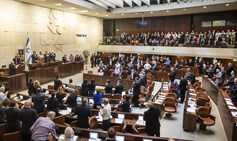
Two Knesset Bills Based on IDI Proposals Pass Preliminary Votes
Two bills based on the IDI research and policy proposals passed preliminary votes in the Knesset. The first anchors the right to equality in Israeli law and the second is a bill regulating digital election campaigns.
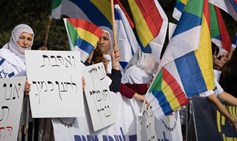
Israel’s Nation-state Law Isn’t ‘Declarative,’ It Does Real Damage
Written By: Dr. Amir Fuchs
"Legislative declarations do not remain purely "declarative". They have consequences." Dr. Amir Fuchs explains.

A Blow to the IDF as the ‘People’s Army’
Written By: Prof. Yedidia Z. Stern
A proposal by the panel appointed to investigate ultra-Orthodox enlistment to lower the exemption age defies multiple High Court rulings
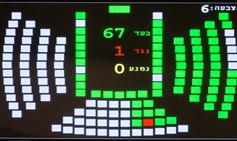
A Decade of Anti-Democratic Legislation
Written By: Dr. Amir Fuchs
The last decade in Israel has been marked by a wave of legislation that has dealt a blow to the country’s democratic values, the rule of law, and separation of powers.

The Decade in Review: Women’s Service in the IDF
Written By: Dr. Idit Shafran Gittleman
The last decade has seen the most meaningful changes in gender equality and women’s service in the IDF since the State was established.

Defending Women’s Rights to Serve Equally
Written By: Dr. Idit Shafran Gittleman
Creating a gender-equal military is a complicated task, but the IDF must not forget its responsibility, nevertheless many Israeli soldiers have not been trained on gender equality says Idit Shafran Gittleman.

Human Rights in an Age of Populism
Written By: Prof. Yuval Shany
The story of liberal democracies in the late 20th and early 21st centuries has been, to a large extent, the story of protecting personal liberties by independent democratic institutions.
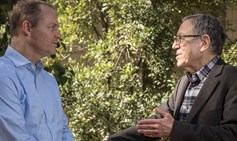
Is Israel's Democracy in Crisis?
Written By: Yohanan Plesner , Prof. Irwin Cotler, By: Steve Linde
IDI’s President Yohanan Plesner and Canadian jurist Irwin Cotler on the challenges facing Israeli democracy in the months ahead.
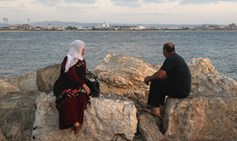
The Five-Year Plan for Arab Israelis: the Acid Test of the Upcoming Elections
Written By: Dr. Nasreen Haddad Haj-Yahya
The five-year plan for the development of the Arab community was a giant step forward towards the socioeconomic advancement of Israel’s Arabs, nevertheless the current election campaign is going to be the acid test: Is the Israeli government serious about integrating the country’s Arab citizens into the broader society, or merely in promoting the Arab economy in light of its importance for the country’s overall prosperity?
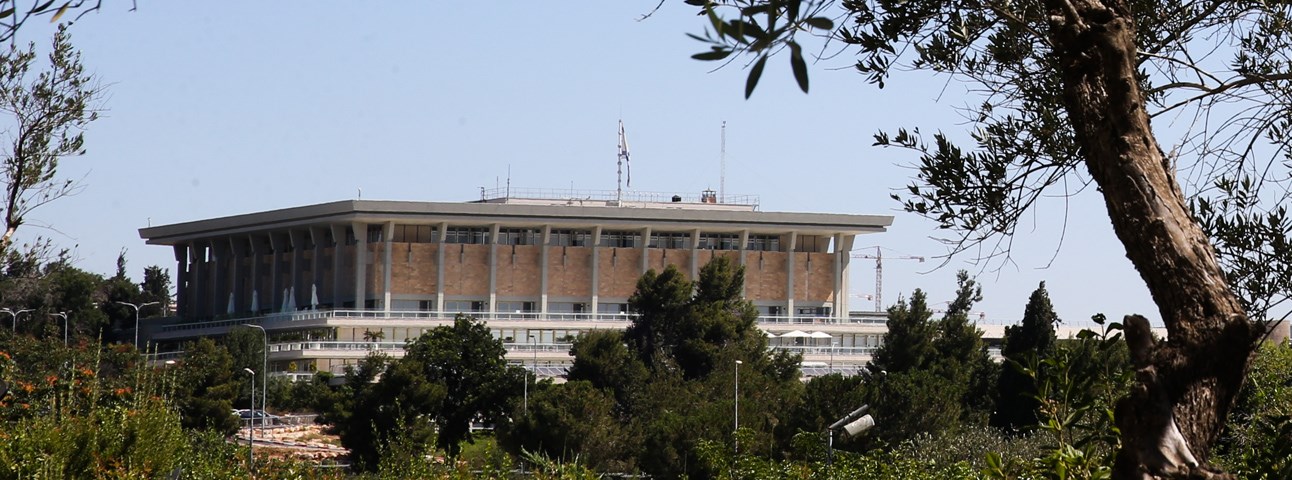
Israeli Democracy at 70
Written By: Adv. Alona Vinograd
Israel at 70 is still a thriving democracy, but current concerns are justified, says Alona Vinograd in an interview to Fathom.

In Grand Debut, Israel's Nation-state Law Reveals Its Ugly True Colors
Written By: Prof. Mordechai Kremnitzer
The deputy president of the Jerusalem District Court inaugurated the Basic Law on Israel as the Nation-State of the Jewish People, issuing the first verdict based on it - imposing punitive damages on Hamas for the severe post-traumatic stress suffered by a Jewish Israeli wounded in a terror attack in Tel Aviv in 1998.
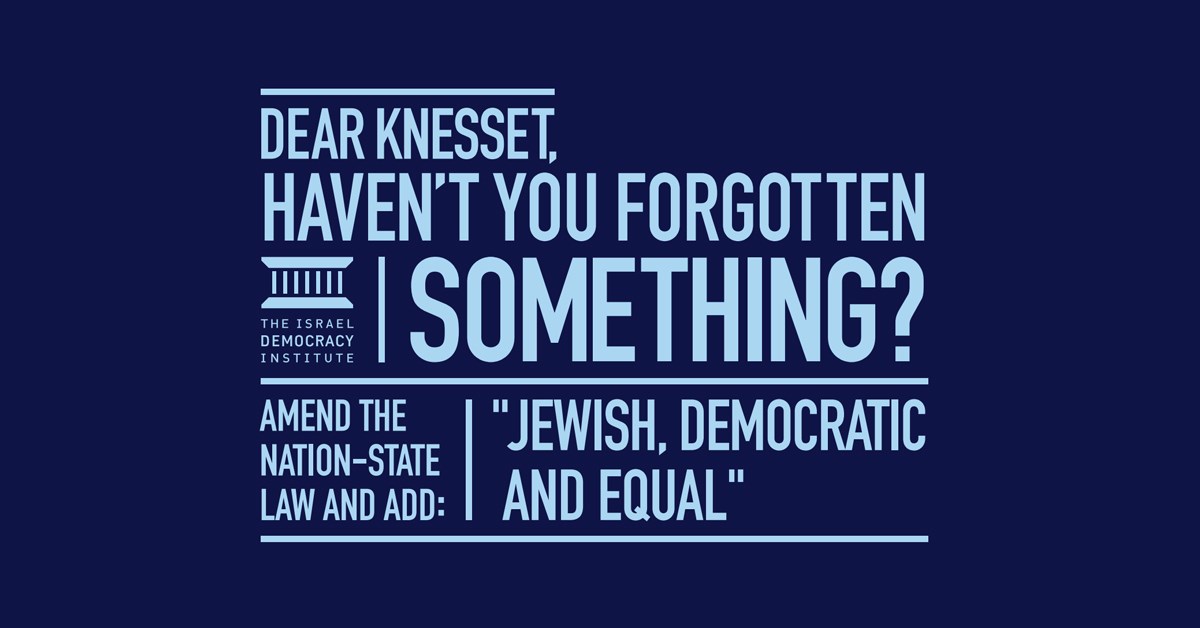
Q&A about the Nation-State Law
Amend the Nation-State Law and Add: "Jewish, Democratic and Equal"

Strengthening Jewish Peoplehood In The Diaspora — But Not In Israel
Written By: Yohanan Plesner
In the bill’s final wording, the state only commits itself to act within the Diaspora to strengthen the ties of Jewish peoplehood – as if actions taken inside the Jewish state, like the reneged-upon Western Wall compromise, have no bearing on the rest of the Jewish world.

Israel's wealthiest are abandoning IDF combat units
Written By: Dr. Asaf Malchi
Israel's secular elite has lost its enthusiasm for combat service and now targets intelligence units, such as Unit 8200.
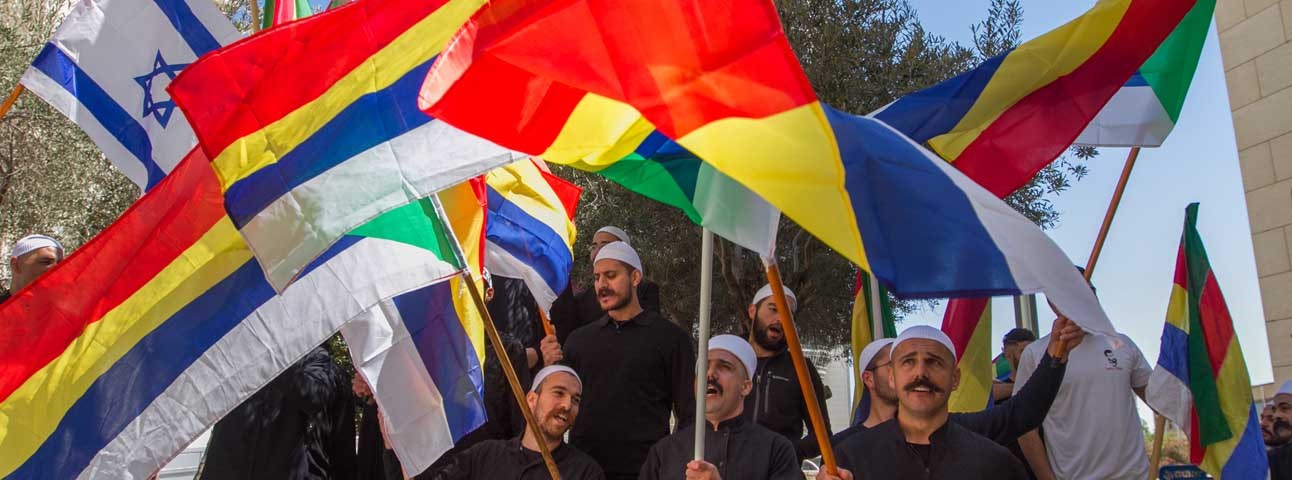
60% of Israelis Think the New Nation-State Law Should Have Included ‘Equality'
Written By: Prof. Tamar Hermann, Prof. Ephraim Yaar
The monthly Peace Index of the Israel Democracy Institute and Tel Aviv University, published today, finds that: only 52% of Jewish Israelis think it was important to pass the Nation-State law at this time.
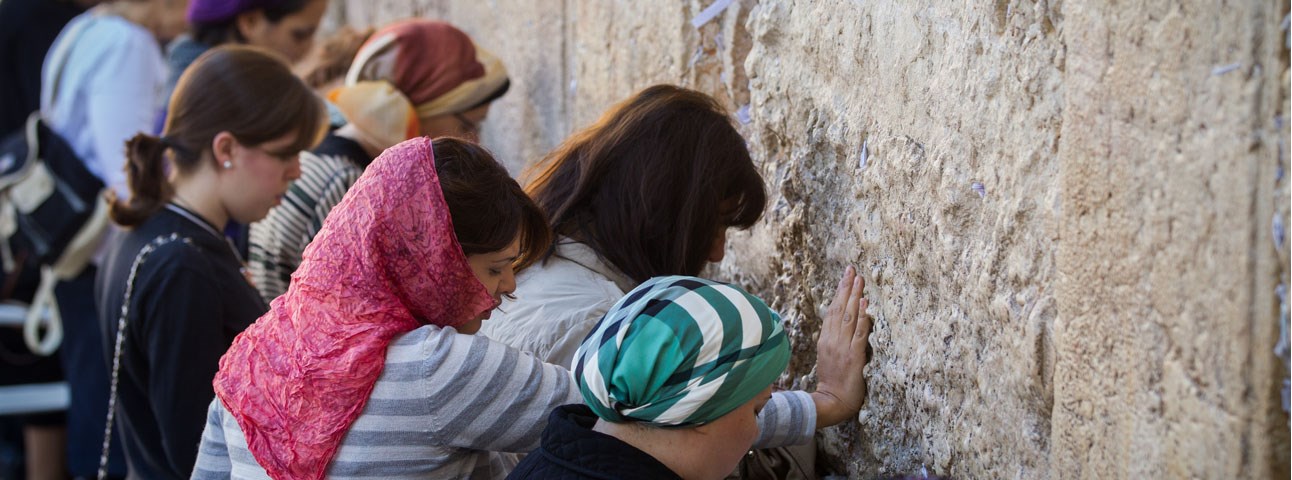
Israel Is Repeating The Mistakes That Led To The Temple’s Destruction
Written By: Prof. Yedidia Z. Stern
What message of Tisha B’Av is relevant for life in a sovereign state like Israel? Does the American recognition of Jerusalem as the capital of Israel make the day of mourning for “the city that is in mourning, laid waste, despised and desolate” an anachronism?

The Nation State Bill is a Constitutional Abandonment of Diaspora Jewry
Written By: Dr. Shuki Friedman
This bill is superfluous and will do far more harm than good. In its newly revised version, the Nation-State Bill, which has been problematic since its inception, reaches new lows by effectively abandoning Diaspora Jewry.

Letter to the Israeli Government on the Nation State Bill
Written By: Yohanan Plesner , Prof. Yuval Shany, Prof. Yedidia Z. Stern
The Israel Democracy Institute issued a letter to the Prime Minister regarding the Nation State Billl, asserting that if the value of equality is not anchored in the legislation alongside the other enumerated national characteristics of the state, the law may eventually erode Israel's democratic character
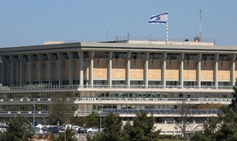
The Nation State Bill Bias
Written By: Dr. Amir Fuchs
How can Israel - a light to the nations, and homeland for the Jewish People, fail to embrace equality for all, alongside commitment to the diaspora?

Watch the Construction of the Democracy Pavilion in 60 Seconds
Ron Huldai, Mayor of Tel Aviv-Yafo Municipality: "The establishment of the Democracy Pavilion is an impressive demonstration of Israeli democracy. Only in a democratic society can freedom and tolerance co-exist. This is what allows the opposing sectors of Israeli society to live side by side." The Democracy Pavilion is located at the start of the Independence Trail in Tel Aviv and is open to the public free of charge.
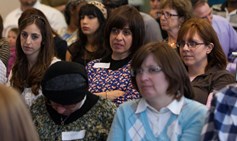
Integrating Women into Politics: Another Solution
Written By: Prof. Ofer Kenig, Dr. Chen Friedberg
The absolute exclusion of women from ultra-Orthodox parties keeps their specific interests from being addressed effectively in the public sphere.

Women in the IDF: The Challenge of an 'Integrated' Army
Written By: Dr. Idit Shafran Gittleman
The state of Israel has also been grappling in recent years with an intense controversy over the service of women in the Israel Defense Forces (IDF), which recently came to a boiling point with the amendment of the “Joint Service Order,” which sets out guidelines for women’s military service alongside Orthodox men

Jewish, Democratic and Equal
Written By: Prof. Yedidia Z. Stern
There is a necessary condition that must be fulfilled for the existence of our nation-state to be justified: there must be an unconditional guarantee of civic equality for our national minorities. In this area, there is still much to be done.
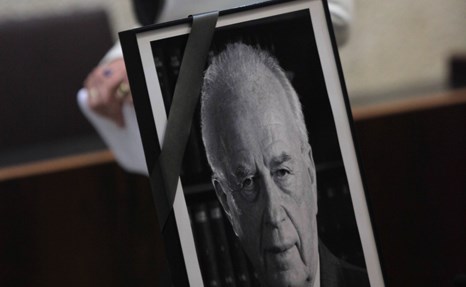
Only As a Democracy Will We Win
Written By: Yohanan Plesner
IDI President Yohanan Plesner says that even after 20 years, the assassination of former Prime Minister Yitzhak Rabin remains the Israeli democracy's breaking point. He calls on all peoples and their leaders to develop a joint democratic vision.

Israel’s next Equal Employment Opportunity Commissioner should be an Arab
Written By: Dr. Talya Steiner
The identity of the next commissioner is so important.
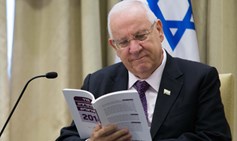
Rivlin Under Fire
Written By: Dr. Amir Fuchs
Ever since he was elected, President Reuven Rivlin has been under attack from the extreme right wing in Israel. Why should a right-wing President be under attack from the right? IDI Researcher Dr. Amir Fuchs explores the origins of the animosity towards Israel's liberal, right-wing President.

The Admissions Committees Ruling: A Lack of Ripeness or Refusal to Decide?
Written By: Dr. Amir Fuchs
Dr. Amir Fuchs discusses the Israeli High Court of Justice's decision to uphold the "Admissions Committees Law," which allows small communities to reject applicants due to a lack of social suitability.

Shmita: Rest, Share, Release
Written By: Prof. Yedidia Z. Stern
An exploration of the existential, social, and economic dimensions of the Shmita year, that calls for bringing together social, moral, cultural, religious and national forces to implement the idea of Shmita in non-agricultural and national contexts in Israel.

Education for Democracy as a Remedy for Violence
Written By: Dr. Amir Fuchs
Attorney Amir Fuchs asserts that educating Israeli students regarding democracy and civics from a young age and throughout their education is the best way to prevent hatred, violence, and racism.

My Jerusalem: Thoughts for Jerusalem Day
Written By: Prof. Mordechai Kremnitzer
IDI Vice President Prof. Mordechai Kremnitzer shares thoughts on Jerusalem, which symbolizes what is most beautiful and exalted in Jewish culture: the commitment to law and morality, to justice and mercy.
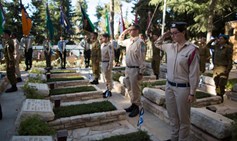
A Jewish State Warrants Our Sacrifice
Written By: Prof. Yedidia Z. Stern
IDI Vice President Prof. Yedidia Stern reflects on the privilege of sacrifice and the necessity to maintain a Jewish Israel in order to justify that sacrifice, in an article written for Remembrance Day for the Fallen of Israel's Wars and Victims of Terrorism.
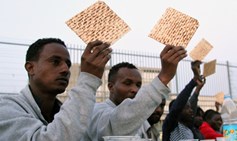
The Lessons of Passover: We are the Other
Written By: Prof. Yedidia Z. Stern
Prof. Yedidia Z. Stern asserts that if we see ourselves as "other" and identify with the stranger, the poor, and people with disabilities, historic redemption of our ancestors from Egypt will be an ongoing redemption for our generation.
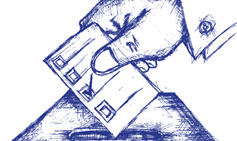
Basic Law: Referendum—Changing the Rules of the Game of Israeli Democracy
Written By: Dr. Dana Blander
Dr. Dana Blander draws on the findings of Israeli public opinion polls and explores some of the ramifications of the new Basic Law: Referendum, a law that establishes a system in which every citizen is entitled to participate in historic decisions on withdrawal from territory.

On Leadership and Responsibility: The Lessons of the Purim Story
Written By: Shira Ruderman, Benjamin (Benny) Lau
Rabbi Dr. Benny Lau and Shira Ruderman, Israel Director of the Ruderman Family Foundation, share thoughts on the Purim story, leadership, responsibility, and repair of the world.

The IDF and the Ultra-Orthodox
Written By: Haim Zicherman
As the Knesset prepares to vote on the "Draft Law" designed to regulate the service of ultra-Orthodox men in the Israel Defense Forces, Dr. Haim Zicherman surveys the current situation within Israel's Haredi community.
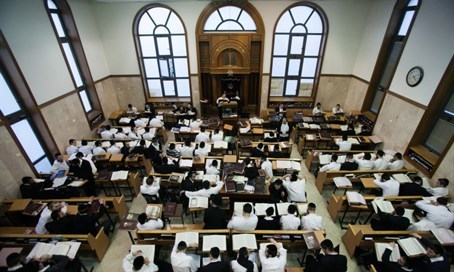
An Unequal Share of the Burden? The Truth about the Hesder Yeshivot
Written By: Prof. Benjamin Porat
Do students in the religious Zionist hesder yeshivot really contribute less to the IDF than other men who serve? IDI Researcher Dr. Benny Porat does the math and comes to an interesting conclusion.

The Case of Jonathan Pollard: A Legal Analysis
Written By: Prof. Mordechai Kremnitzer
In an op-ed in The Jerusalem Post, IDI Vice President Prof. Mordechai Kremnitzer analyzes Jonathan Pollard's life sentence and calls on President Obama to put an end to Pollard's incarceration In the name of the shared commitment to justice.
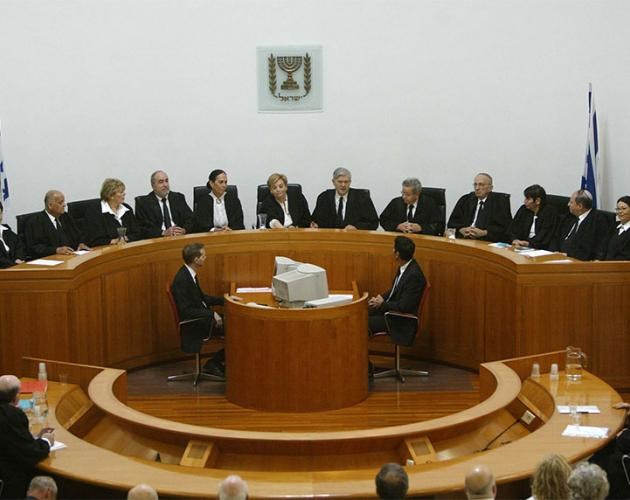
The Haredi Draft: Is the Shaked Committee's Bill Destined to be Overturned?
Written By: Prof. Yedidia Z. Stern
As the Shaked Committee begins to vote on its proposal for the Haredi draft, Prof. Yedidia Z. Stern warns that the proposal's recommendation to exempt Haredi men of draft age during a three-year "adjustment period" is both inequitable and ineffective.

Do You Have to Earn Dignity?
Written By: Prof. Tamar Hermann
Is dignity something that must be earned? Prof. Tamar Hermann, Head of IDI's Guttman Center for Surveys, explores this question, as IDI's Israel Speaks project assembles 200 citizens to begin drafting a Declaration of Human Dignity.

Marriage Equality for the Hearing Impaired
Written By: Benjamin (Benny) Lau
Rabbi Dr. Benjamin (Benny) Lau celebrates a planned change in the Chief Rabbinate's policy regarding the treatment of hearing impaired individuals when it comes to marriage in Israel.

International Disabilities Day 2013: Human Rights and Judaism in Action
Written By: Benjamin (Benny) Lau
In honor of International Day for Persons with Disabilities, Rabbi Dr. Benjamin (Benny) Lau updates us on IDI's efforts on behalf of people with disabilities and reveals that people with guide dogs are now allowed to access the Western Wall.
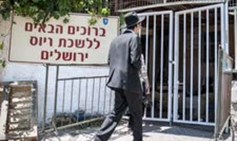
The Haredi Draft: Equality Now?!
Written By: Prof. Yedidia Z. Stern
On November 21 2013, Prof. Yedidia Z. Stern appeared before the Shaked Committee and argued that criminal sanctions are not recommended for reaching conscription goals. In an op-ed in Makor Rishon, he explains why.
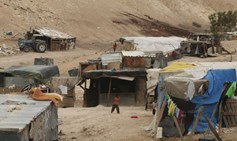
Regulating Bedouin Settlement: A Disengagement Plan for the Negev
Written By: Ronit Levine-Schnur
Ronit Levine-Schnur analyzes the Bill to Regulate Bedouin Settlement in the Negev 5773–2013, warns that it seems to be motivated by an exaggerated fear of a Bedouin takeover of the Negev, and offers an alternative approach.

The Contributors to the State Bill: Contributing to the Jewish-Arab Divide
Written By: Dr. Talya Steiner, Prof. Mordechai Kremnitzer
Prof. Mordechai Kremnitzer and Att. Talya Steiner warn that the veteran's benefit bill, which is intended to extend benefits to those who have contributed to the State, discriminates against Israel's Arab citizens, who are exempt from military service in Israel.

"Who Made Me a Woman": Women in Ultra-Orthodox Society
Written By: Lee Cahaner
A series of Hebrew videos on the historical processes behind the development of the role of ultra-Orthodox women in the family and society, which were developed as part of IDI's research projects on the Nation State and on the Integration of Haredim in Israeli Society.

The Israeli Economy: Has the Melting Pot Succeeded?
Written By: Momi Dahan
A study conducted by IDI Senior Fellow Prof. Momi Dahan that reveals that there has been a continuous narrowing of income gaps between Israelis of European-American origins and of Asian-African origins since the 1990s.

The High Holidays: A Personal and National Time
Written By: Prof. Yedidia Z. Stern
Prof. Yedidia Z. Stern shares thoughts on the Hebrew calendar, which contributes to Jewish unity and preserves the Jewish people as a single national and cultural unit.

How Can We Draft the Ultra-Orthodox with Consent?
Written By: Prof. Yedidia Z. Stern
Is it possible to draft the ultra-Orthodox and integrate them into Israel's society and economy in a mutually-agreeable manner that encourages solidarity between the different sectors of the Jewish people? Prof. Yedidia Z. Stern shares thoughts on wars between brothers and brothers-in-arms.
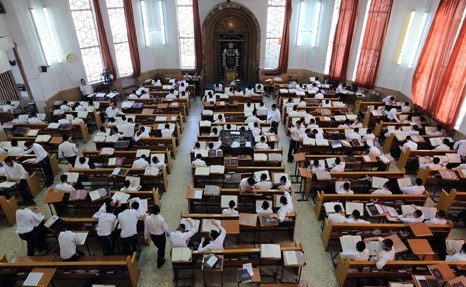
The Ultra-Orthodox Draft: Crossing the Third Rubicon
Written By: Prof. Yedidia Z. Stern, Haim Zicherman
Prof. Yedidia Z. Stern and Attorney Haim Zicherman stress the need to break down barriers that are preventing Haredi service in the army and integration in the labor force, and warn against passing a popular but ill-advised reform.

Haredi Integration: Not by Re-Education
Written By: Haim Zicherman
IDI researcher Attorney Haim Zicherman warns against attempts to integrate ultra-Orthodox Jews into the army by encouraging them to abandon their lifestyle, and calls for developing mechanisms that will accept and respect their values.
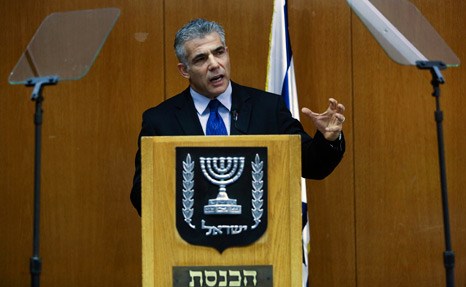
The Ultra-Orthodox Draft: A Test of the New Israeli Politics
Written By: Prof. Yedidia Z. Stern
IDI Vice President of Research Prof. Yedidia Stern warns that the hasty passage of the proposed government bill on the Haredi draft would be "old politics," and stresses the importance of a Knesset debate to arrive at balanced legislation that is in line with the national interest.

The Veterans Benefits Bill: Legal License to Discriminate
Written By: Prof. Mordechai Kremnitzer, Dr. Talya Steiner
Prof. Mordechai Kremnitzer and Attorney Talya Steiner warn that the proposed veterans benefits bill, which would give preferential treatment in employment, higher education, and housing to those who have served in the Israeli army, gives license to discriminate against Israel's Arab minority.
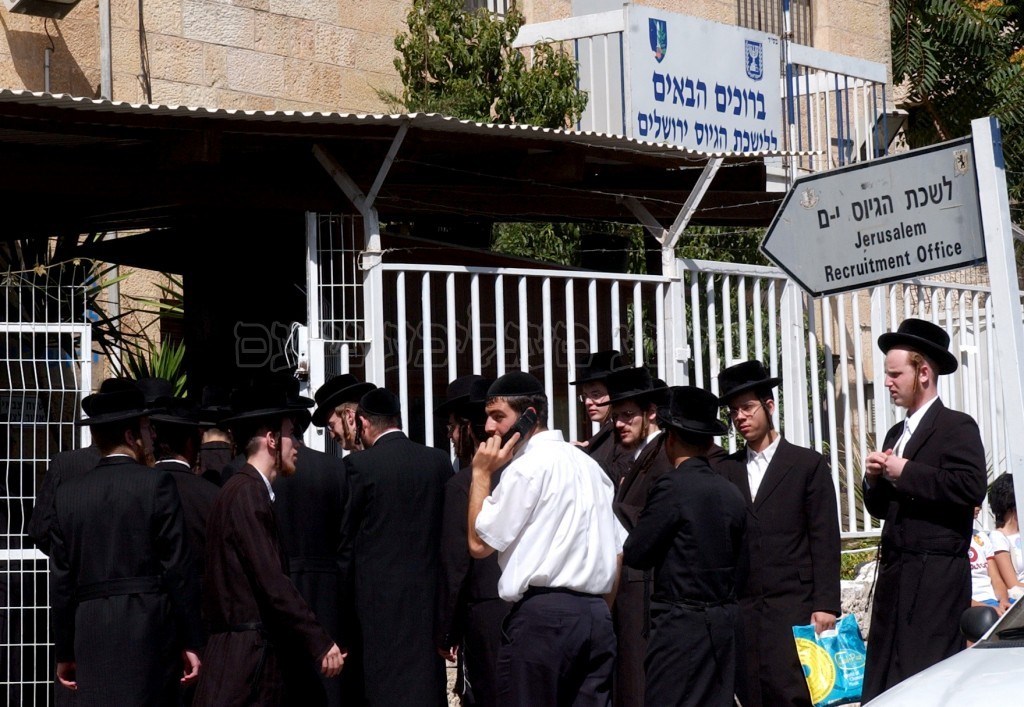
The Peri Committee Recommendations: Fanning the Flames of Haredi Extremism
Written By: Prof. Yedidia Z. Stern
IDI Vice President of Research Prof. Yedidia Stern warns that the Peri Committee recommendations on the ultra-Orthodox draft will undo progress already made in integrating Israel's Haredi community into Israeli society.
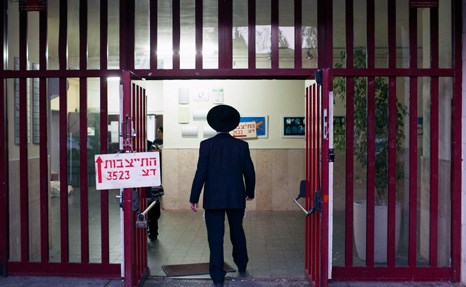
The Proposals for Drafting the Ultra-Orthodox in Israel: The Issues at Hand
Written By: Prof. Mordechai Kremnitzer
IDI's Prof. Mordechai Kremnitzer critiques various aspects of the proposals for integrating the ultra-Orthodox into the army and calls on the Israeli public to stand firm on its demand for an arrangement that is fair and equitable.

The Haredi Draft: The Need for an Alliance of the Moderates
Written By: Prof. Yedidia Z. Stern
Prof. Yedidia Stern calls for a historic alliance between religious and secular moderates that will yield a solution that will that will yield a solution that addresses the need for ultra-Orthodox army service while taking into account the most important values of the Haredi community.

The Need for Equal Sharing of the Burden and Strengthening of Torah Study
Written By: Prof. Benjamin Porat
The need for the ultra-Orthodox community in Israel to share the burden of military service and participate equally in the Israeli economy was a central issue in the 2013 elections. IDI researcher Dr. Benny Porat shares his thoughts on how to bring about this change in the Haredi community.

The Comeback of Polarization
Written By: Prof. Benjamin Brown
IDI researcher Dr. Benjamin Brown discusses the sense of attack experienced by the Haredi community in the 2013 election campaign and calls for a process of gradual change in integrating the ultra-Orthodox in the Israeli army and workforce.
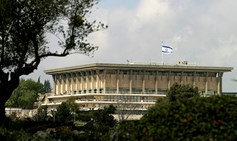
The 2013 Knesset Election Results: A Preliminary Analysis of the Upcoming Parliament
Written By: Prof. Ofer Kenig
IDI researcher Dr. Ofer Kenig draws conclusions from the trends that emerged on Election Day and sketches the anticipated nature of the 19th Knesset.

Israeli Public Opinion on Drafting Haredi Yeshiva Students
Written By: Dror Walter, Chanan Cohen
An analysis of Israeli public opinion on the issue of drafting ultra-Orthodox yeshiva students, as revealed in polls conducted by IDI's Guttman Center for Surveys from 1986 through 2009.

The Haredim and the State of Israel
Written By: Prof. Yedidia Z. Stern, Jay Ruderman
In an op-ed in The Jerusalem Post, IDI's Prof. Yedidia Stern, who served on the Plesner Committee for Equality in National Service, and Mr. Jay Ruderman analyze the Haredi community's reluctance to serve in the Israeli army and present an approach that will facilitate Haredi integration into Israel's army and society.

Ultra-Orthodox Conscription: Making It Work
Written By: Momi Dahan
Will the High Court of Justice’s refusal to extend the Tal Law indeed reduce the inequality of burden sharing in Israeli society? IDI Senior Fellow Prof. Momi Dahan does not think so, and argues that ultra-Orthodox Jews in Israel should be exempted from the army and allowed to work, so as to assume their fair share of the tax burden.

Do Not Put an End to Ultra-Orthodox Army Service
Written By: Haim Zicherman
Following the dissolution of the Committee to Advance Equality in Sharing the Burden, committee head MK Yohanan Plesner submitted proposals for alternatives to the Tal Law. In this article, IDI Researcher Attorney Haim Zicherman, who served as the content coordinator of the Plesner Committee, warns that some of those measures were personal recommendations rather than recommendations of the Committee, and may reverse trends of increasing army service by ultra-Orthodox Jews.

The Tal Law: Judicial Responsibility at its Best
Written By: Prof. Mordechai Kremnitzer
Prof. Mordechai Kremnitzer presents a contrasting view to Prof. Yedidia Stern's assertion that the Israeli Supreme Court's ruling on the exemption of ultra-Orthodox men from military service in Israel is "<a href="http://en.idi.org.il/analysis/articles/judicial-activism-at-its-height">Judicial Activism at its Height</a>."

The Tal Law: Judicial Activism at its Height
Written By: Prof. Yedidia Z. Stern
The Supreme Court's decision to strike down the Tal Law, after 30 years of avoiding the issue of the exemption of ultra-Orthodox Jews from military service, is an expression of judicial activism that illustrates the transformation that the Israeli Supreme Court has undergone in the last generation. In this op-ed, originally published in Hebrew in <em>Makor Rishon</em>, IDI Vice President Prof. Yedidia Stern asserts that the Court went too far in this ruling and that its activism is hard to justify.

If They Give, They Will Receive
Written By: Yair Sheleg
In this response to the Supreme Court ruling on the Tal Law, IDI Senior Researcher Yair Sheleg asserts that the exemption of ultra-Orthodox men from military service is an unparalleled <em>Hillul Hashem</em>—a desecration of the Name of God, and shares his views of a possible solution.

Make the Ultra-Orthodox Serve
Written By: Yair Sheleg
IDI Vice President of Research Prof. Yedidia Stern sets the controversy over mass transportation on Shabbat and holidays in Israel in a broader context, and distinguished between the need for an Israeli-Jewish Shabbat (Sabbath) rather than a religious Shabbat.
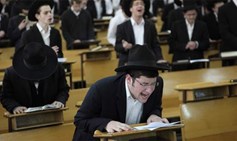
In the Aftermath of the Tal Law
Written By: Prof. Yedidia Z. Stern
Will the Israeli Supreme Court's ruling that the Tal Law is unconstitutional really guarantee that the burden of Israel's defense will be shared equally by the country's citizens? IDI's Prof. Yedidia Stern warns that this ruling may actually hinder the integration of the Haredi community into Israeli society rather than promoting it.

Finding Middle Ground
Written By: Haim Zicherman
In an op-ed in Israel Hayom, IDI researcher Adv. Haim Zicherman argues that a temporary extension of the Tal Law would help the growing trend of ultra-Orthodox enlistment in the IDF and would enable volunteering for civilian service to continue.

Arab Identity in a Jewish and Democratic State
Written By: Karin Tamar Schafferman
IDI researcher Karin Tamar Shafferman calls for a reexamination of the relationship between Arabs and Jews in the State of Israel and an exploration of the way Israel's Arabs define themselves, in order to determine whether the equality that Ben-Gurion spoke of upon founding the State has been achieved.

Crime in Arab Israeli Communities: Cutting Prevention Undermines Security
Written By: Dr. Khader Sawaed
Diverting hundreds of millions of shekels from the five-year plan for Arab society toward enforcement and security will harm both the effort to reduce socioeconomic gaps and personal security.
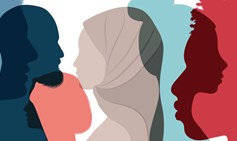
Equality Now!
Written By: Prof. Suzie Navot
The problem with the Nation-State Basic Law is what it fails to mention - equality! Thus excluding Israel’s minorities who call the country home.

Legislating the Right to Equality is a Must
Written By: Dr. Amir Fuchs
Israel is the only democracy whose constitution or basic laws omit all mention of the right to equality –leaving a gaping hole that must be filled.
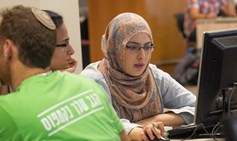
Opportunities Now: Arab Employment in the Galilee
Written By: Dr. Nasreen Haddad Haj-Yahya
The north presents real opportunities for Israel’s society and economy. Turns out that the solutions have been in plain sight all along.


